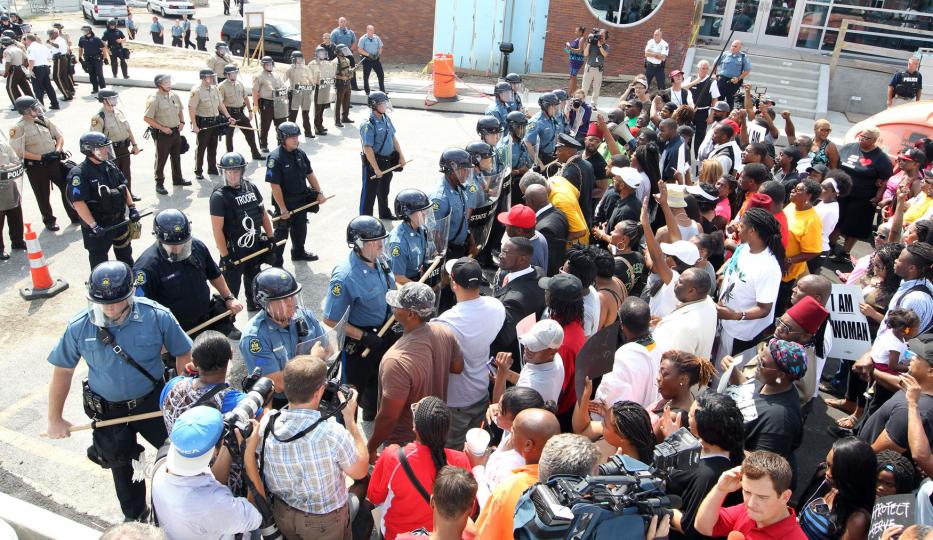 There are striking similarities between the events in Tunisia, which triggered the Arab Spring and the situation unfolding in Ferguson, Missouri. The shooting of an African American teenager was the catalyst for segments of Ferguson’s population of 21,000 to move to protests, civil disobedience, and violence just as the self-immolation of a fruit vendor in 2010 caused nation-wide protests and the eventual overthrow of the Tunisian government. It is not the individual events themselves that demand attention or focus, but the underlying causes that when identified and understood provide potential solutions to the current and future civil unrest.
There are striking similarities between the events in Tunisia, which triggered the Arab Spring and the situation unfolding in Ferguson, Missouri. The shooting of an African American teenager was the catalyst for segments of Ferguson’s population of 21,000 to move to protests, civil disobedience, and violence just as the self-immolation of a fruit vendor in 2010 caused nation-wide protests and the eventual overthrow of the Tunisian government. It is not the individual events themselves that demand attention or focus, but the underlying causes that when identified and understood provide potential solutions to the current and future civil unrest.
The cause of the riots in Ferguson are said to be attributed to a history of tension between the police force and individuals within the community of Ferguson. Ferguson is composed predominately of African Americans, constituting around two-thirds of the population. While the majority of the police force is Caucasian, with only 3 of the 53 officers on the force being African American. However, the root causes for the social unrest experienced in Ferguson can be attributed to cultural attitudes, official and unofficial policies, the economic decay of an industrial city, and increased levels of poverty in its suburbs. But the most important factors that have contributed to the situation in Ferguson are the lack of economic opportunity—with an unemployment rate of 16% in the black labor force, compared to 8.5% of the white labor force—and the lack of a political voice or say for individuals and families to improve their livelihoods.
Historically, African Americans in St. Louis have faced racial barriers and animosity, but used politics to channel that anger and create social change. Unfortunately, “civil society is more and more able to mobilize, but not into a political force,” says Belhassan Handous of Reporters Without Borders. It is this frustration and inability to have a political voice that drives segments of a population to protests and violence. When young unemployed, frustrated African Americans in Ferguson do not have a political voice, or think they do not have a manner to affect social change, then their only option is violence. In Tunisia, deep-seeded frustrations over high unemployment rates, poor economic policies, and corruption manifested in the form of self-immolation, with over 150 incidents since 2010. The most recent event occurred this week in response to Tunisia’s unemployment rate which remains at over 17%.
Ferguson, Missouri will continue to experience heightened social tensions and unrest until reasonable expectations for future economic opportunity and a political voice are met. Although the outcome in Ferguson will not result in the overthrow of the U.S. national government, leaders in industry, social activism, and government at all levels should recognize the underlying causes of violence in Ferguson as economic, not racial. Only then will future violence cease and real solutions to improve the economic opportunity for Ferguson’s citizens be discussed with, agreed upon by, and implemented for everyone’s benefit.

